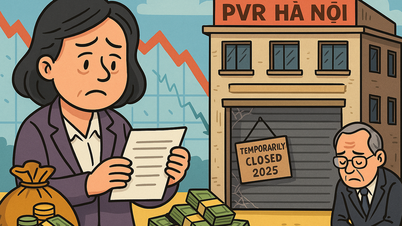ANTD.VN - Standard Chartered Bank forecasts that the SBV will reduce the refinancing rate by another 50 basis points to 5% by the end of the second quarter and maintain it until the end of 2025. However, there is also a possibility that interest rates will increase, especially at the end of the year.
In a recently released report, Standard Chartered Bank has lowered its forecast for Vietnam's GDP growth in 2023 to 6.5% from the previous 7.2%.
Macro indicators in April showed a slowdown, the report said. Exports fell 17.1% year-on-year, imports fell 20.5% year-on-year, and industrial production rose only slightly year-on-year; the trade surplus widened to US$1.5 billion from US$0.7 billion in March.
In the first four months of the year, exports fell 11.8%; imports fell 15.4% year-on-year, with a trade surplus of US$6.4 billion.
Inflation was 2.8% in April, down for the third consecutive month from 4.9% in January; core inflation rose to 4.6% as retail sales surged 11.5%.
Disbursed FDI capital from January to April 2023 reached a total of 5.9 billion USD, down 1.2% year-on-year; committed FDI capital reached 8.9 billion USD, down 17.9%.
 |
Standard Chartered lowers Vietnam's GDP growth forecast |
“Vietnam is a heavy importer, so the significant decline in import indexes shows that economic activity is slowing down, although domestic consumption remains strong,” said Tim Leelahaphan, Thailand and Vietnam economist at Standard Chartered Bank.
Regarding monetary policy, Standard Chartered forecasts that the State Bank of Vietnam (SBV) will cut the refinancing rate by another 50 basis points to 5% by the end of the second quarter, after which the interest rate will be maintained until the end of 2025.
However, there is also a possibility that interest rates will increase, especially towards the end of the year, as the SBV may focus on financial market stability rather than growth.
“Since the beginning of 2023, the SBV has shifted to supporting the economic recovery process. In addition to cutting interest rates, the SBV has also supported struggling businesses by giving them more time to resolve liquidity shortages.
In April this year, lending terms were made easier, including deferral of repayments (up to 12 months) and interest rate waivers. The real estate market may need further liquidity support measures as the measures implemented so far only help to ease debt repayment pressures in the short term,” said Mr. Tim Leelahaphan.
Source link




![[Photo] National Assembly Chairman Tran Thanh Man meets with Thai Prime Minister Paetongtarn Shinawatra](https://vphoto.vietnam.vn/thumb/1200x675/vietnam/resource/IMAGE/2025/5/15/e71160b1572a457395f2816d84a18b45)


![[Photo] Prime Ministers of Vietnam and Thailand visit the Exhibition of traditional handicraft products](https://vphoto.vietnam.vn/thumb/1200x675/vietnam/resource/IMAGE/2025/5/15/6cfcd1c23b3e4a238b7fcf93c91a65dd)



























































































Comment (0)